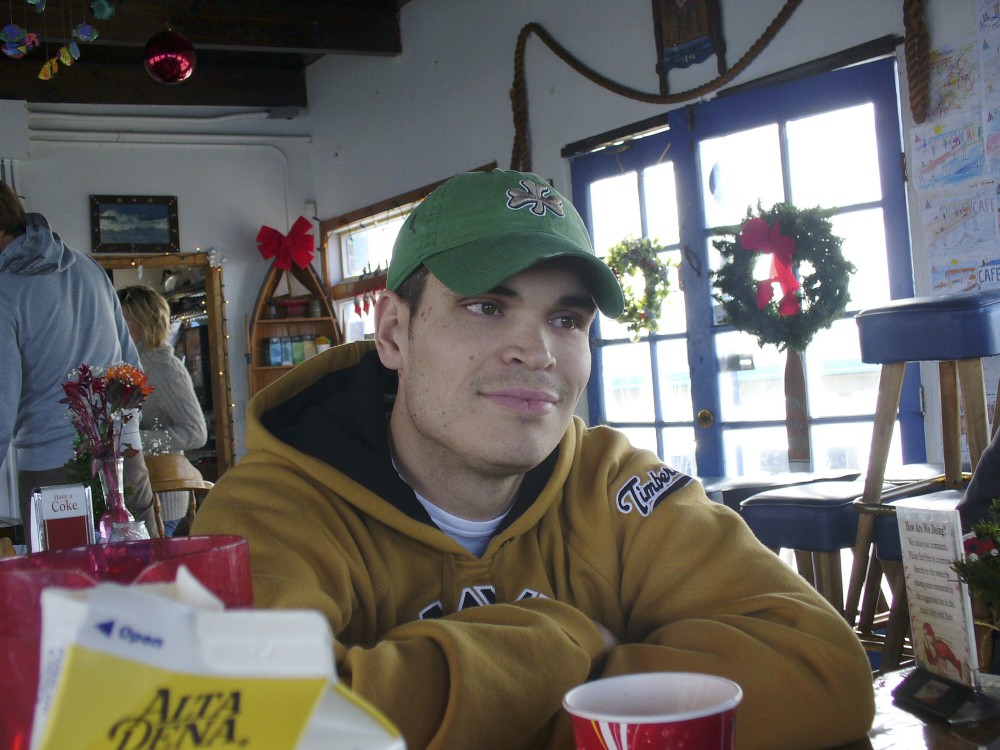Michael Norton embodied the entrepreneurial spirit, a go-getter who always seemed to know exactly where he was headed.
As a student growing up in Eliot, he collected baseball cards and soon leveraged his ability to memorize price guides into a small business buying and selling cards.
In time, he was renting tables at card shows, said his father, Terrence Norton, a 13-year Navy veteran who worked at the Portsmouth Naval Shipyard in Kittery.
“I didn’t think I had to be concerned,” his father said. “He seemed to know what he wanted. … He was really intelligent, really aware of his surroundings most of the time.”
But in 2008, Norton was behaving erratically. He was hospitalized with mental health problems on Aug. 23, but checked himself out of the hospital the next day. His family and friends, worried that he might try to hurt himself, called police.
They surrounded his house on Main Street in South Portland, and after four hours of negotiation, Norton came out armed with a pair of knives – intent on having police shoot him. As the 29-year-old approached officers and refused to drop his weapons, they did.
A state-mandated review by the Attorney General’s Office and two county prosecutors found police were justified in shooting Norton. He posed an imminent threat to others after coming within 15 feet of other officers and continuing to advance, the review concluded.
It was an end that nobody would have predicted for the Marshwood High School graduate, who passed up a chance to attend Embry-Riddle Aeronautical University in Florida.
Norton told his father he was not ready for college – that if he went, he would likely party, flunk his classes and drop out.
In 1999, he enrolled in the University of Southern Maine, where he majored in accounting and economics and was treasurer of the student senate, his father said. He graduated in 2004.
Norton enjoyed the company of friends. They played Texas hold’em poker, but sometimes made him sit out because he had won too much, his father said. He liked to handicap professional and college sports and had a fondness for boa constrictors.
Eventually, he signed on as chief financial officer of Maine Centers for Healthcare, a small company with 11 doctors in five facilities.
“Michael was a very good employee, an aggressive, hard-working employee who I thought had a great future in front of him,” said Dr. Owen Pickus, owner of the health care company and an attorney who represented the Nortons. “He was very smart and quick on his feet.”
The week before his death, Norton visited his sister in California. She said he drank more than usual and would go off exploring by himself, which was uncharacteristic.
When he got back to Maine, he didn’t return to work. His behavior became increasingly worrisome, and the people around him were afraid he might hurt himself or even commit suicide.
A psychiatrist who had been treating him called police on Aug. 22, 2008, to say that Norton had tried to buy a shotgun, was a threat to himself and he should be taken into protective custody. Norton was eventually hospitalized, but was allowed to check himself out.
When his father got him on the phone, Michael Norton was slurring his words.
Then came a series of tense phone calls to Michael Norton at his home. He had been drinking, taking prescription medication and was armed with a knife. A female friend was with him.
After a four-hour stalemate, the woman left the house. Michael Norton told police he planned to charge them with a knife. When he did come out, he held a knife in each hand, according to a report by investigators with the Attorney General’s Office. He challenged police to shoot him, even describing a circle over his heart with one hand, and walked to within a few feet of an officer, the report said.
Police, aware of Norton’s mental health crisis, had planned to fire a less-than-lethal beanbag round, but instead of Norton coming out the front door, where that officer was located, he came out the back of the house. Sgt. John Sutton repositioned himself with the beanbag-equipped shotgun, but just as he fired, so did Officer Benjamin Macisso.
Macisso’s single rifle shot killed Norton.
Terry Norton said he is convinced the police could have handled the situation better.
“In the big scheme of things,” Norton said, “he hadn’t broken any laws. He had done nothing illegal. He was in his house on his own property and they’re dictating to him what he has to do. Because he wasn’t doing it, they were getting frustrated.”
The family sued, claiming the department was ill-prepared and did not have to kill Norton.
But like the attorney general, a judge determined that the police did not use excessive force when they shot Norton and did not violate his constitutional rights.
Pickus, the lawyer who employed Norton, said he believes Norton was a good person who would still be alive if a crisis team had been involved and there was better communication.
“Now it’s too late,” he said. “You can’t pull the bullet back.”
Send questions/comments to the editors.



Success. Please wait for the page to reload. If the page does not reload within 5 seconds, please refresh the page.
Enter your email and password to access comments.
Hi, to comment on stories you must . This profile is in addition to your subscription and website login.
Already have a commenting profile? .
Invalid username/password.
Please check your email to confirm and complete your registration.
Only subscribers are eligible to post comments. Please subscribe or login first for digital access. Here’s why.
Use the form below to reset your password. When you've submitted your account email, we will send an email with a reset code.